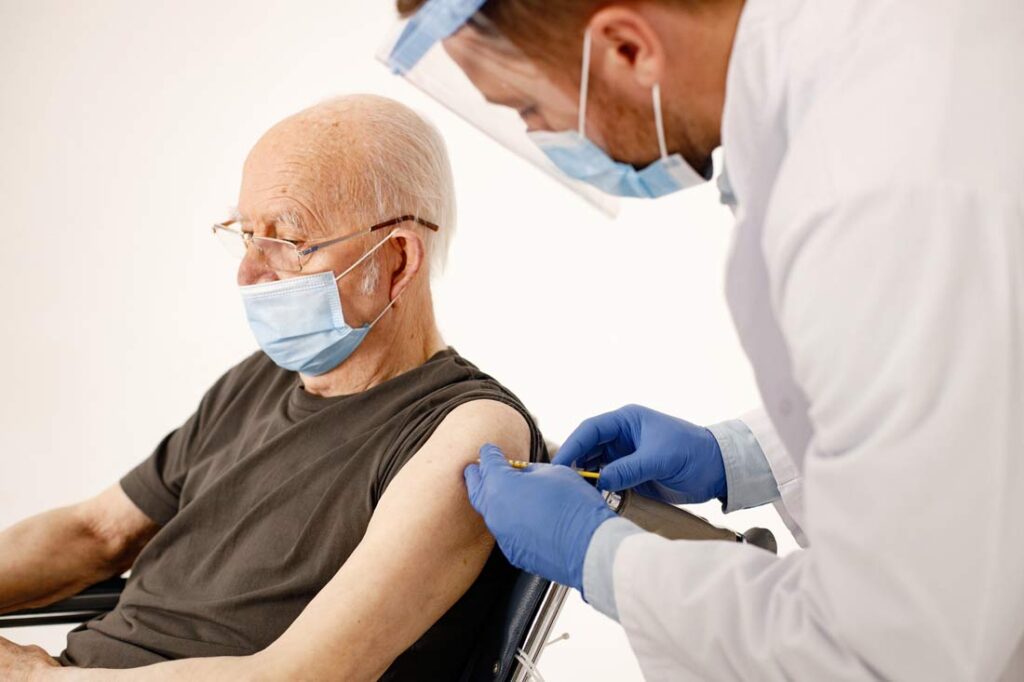
What Is Medical Power of Attorney?
A power of attorney (POA) is a legal document that gives an agent the power to act on your behalf. The person who gives the authority to an agent is referred to as the principal.
A power of attorney can be general, giving your agent all the powers and rights that you have yourself, or limited to financial or medical matters, for example. A medical power of attorney allows you to authorize an agent to make healthcare-related decisions for you. This is a durable power of attorney, in other words, it stays in effect after you become incapacitated and unable to handle matters on your own.
A medical power of attorney is used when the principal:
- Experiences a lapse in mental health and is not of sound mind
- Loses the ability to communicate due to dementia or disease, or
- Falls into a coma as the result of stroke or brain injury.
Whom can I choose as an agent?
Your agent needs to be someone you trust and who understands your values, beliefs, and wishes when it comes to medical care, including end-of-life care. A medical POA agent is typically either a family member (a parent, child, sibling, or spouse) or a close friend.
Your agent must be a mentally competent adult who can understand the medical explanations given by your doctor and with whom you can discuss your medical wishes, such as:
- CPR and resuscitation
- Fears about specific medical treatments
- Receiving food and water through a tube
- How long to continue treatments when there is no improvement
- In what cases to pursue aggressive treatments.
You may, of course, change your views about these issues over time. That’s why you should speak regularly with your agent and make sure that they are well prepared to carry out your wishes should the need arise.
You are not allowed to appoint your attending physician, an employee of your attending physician, the owner or an employee of a healthcare facility where you’re receiving treatment as your agents unless they are related to you.

What decisions can an agent make?
The person you choose as your agent can make most medical decisions for you, including:
- Which doctors or facilities to work with
- What medical tests to run
- What medicines you should take
- If and when you should have surgery
- How aggressively to treat a disease
- What residential care facility to choose
- What medical, social service, and other support personnel to choose
- Whether to authorize your participation in medical research related to your medical condition
- Whether to disconnect life support if you’re in a coma, and
- Whether to authorize organ donation or an autopsy after death, as permitted by law.
You can choose to restrict your agent from making any of these decisions on your behalf.
Your agent is required by law to consult with medical professionals about your diagnosis before making any decisions and is allowed to see your medical and hospital records. The agent must respect your wishes or, if they are unknown, act according to what is in your best interest. In the absence of instructions, agents are free to use their judgment.
However, an agent is not allowed to make the following decision:
- Agree to an abortion
- Agree to hospitalize you for mental health services
- Agree to psychosurgery or convulsive treatment, or
- Refuse care that will keep you comfortable.
Medical Power of Attorney in Missouri
In Missouri, the medical power of attorney is also known as Missouri Health Care Power of Attorney and Missouri Medical Power of Attorney.
Under Missouri law, a medical POA agent has the obligation to:
- Act in your best interest
- Avoid conflicts of interest that can impair his/her ability to take suitable actions
- Follow the instructions that are put in place without making any modifications, and
- Keep in contact and communicate regularly with you about your wishes regarding your medical care.
Is a healthcare directive the same as a healthcare power of attorney?
A healthcare directive, also known as a living will or advanced directive, allows you to give another person the instructions regarding continuing or withholding life-sustaining treatment if you suffer from a terminal or an irreversible condition. A medical power of attorney has a wider scope and is not limited to life-sustaining treatment. In Missouri, a healthcare directive is not the same as a medical power of attorney, however, the two are usually included in the same document.
What are the steps that need to be taken?
Each state has a different way of enforcing the laws regarding a medical power of attorney. Here are the steps you need to take in order to set up your POA in Missouri.
Step 1: Choose an agent
Pick a close relative or a trusted friend who will act as your agent. If you wish, you can appoint multiple agents to make decisions jointly. Alternatively, you can give each agent different powers and responsibilities. You may also name a successor who will take over if your primary agent is unable or unwilling to fulfill their duties.
Step 2: Fill in the power of attorney form
The Missouri power of attorney form consists of three parts:
- Part I is the Durable Power of Attorney for Health Care form. It allows you to name an agent who will make healthcare decisions for you when you are not able to do so.
- Part II is the Health Care Directive form which allows you to state the care and treatment you are willing to have, including the use of life-prolonging procedures. This part may serve as a guide for your agent. In this part of the document, you can indicate the following:
- Whether you want to have one or two doctors determine that you are incapacitated
- Whether you want to be buried or cremated when you pass away
- Whether you want to be given artificially supplied nutrition and hydration
- Whether your agent has the right to withdraw artificially supplied nutrition and hydration
- Whether you agree to organ donation.
- Part III is General Provisions. It describes the process your agent must go through in order to make decisions in your place. This part of the form also states that the power of attorney document can be revoked, copied, and relied on by other persons.
You can choose to complete both Part I (Durable Power of Attorney for Health Care) and Part II (Health Care Directive), or only one of the two. If you don’t complete Part I, then Part II will be in force as your health care directive.
Step 3: Read the disclosure statement
Before you sign the POA form, you must read a disclosure statement that summarizes the nature and effect of the document, the rights and obligations of all the parties, and the contents of the form. It also states that in the event your agent is unable to make a decision, the document can be used on its own as an instruction to healthcare providers.
Step 4: Sign the form
You must sign the form in the presence of a notary public who witnesses and acknowledges the signature.

Can I do power of attorney myself?
You can create a medical POA yourself as long as it fulfills your state’s requirements. Alternatively, you can use an online service provider to create the document or have an attorney draft the form for you.
The Missouri Bar makes available the Missouri Bar Durable Power of Attorney for Health Care and Health Care Directive for use by the general public. This form may be downloaded and printed as needed. Copies of the form are also available at no charge at courthouses, libraries, and University of Missouri Extension Centers across the state.
To create a valid medical power of attorney in Missouri, the document must be entitled “Durable Power of Attorney” and include the following text or a text that is substantially similar:
“This is a durable power of attorney and the authority of my attorney in fact, when effective, shall not terminate if I become disabled or incapacitated or in the event of later uncertainty as to whether I am dead or alive.”
A medical POA must clearly state that the document represents a durable power of attorney regarding healthcare decisions and that you understand that the powers given apply if you are incapacitated. The form must include your full name and the name of the individual or individuals to whom you want to grant a power of attorney, their relationship to you, as well as their contact information.
Finally, you have to execute the document legally by dating and signing it and provide the signatures of witnesses and notarization.
Does a Power of Attorney Need to Be Notarized in Missouri?
Yes. In Missouri, you are required to sign the medical power of attorney document in the presence of a notary public. Notaries are state-specific and you can only use a notary in your state of residence, in this case, Missouri.
Two witnesses need to be present when you sign the document. In addition, a notary must witness their signatures and is not allowed to notarize a previously signed document. Witnesses must be above the age of 18 and not related to you or named in the power of attorney (in other words, your agent cannot be a witness). Witnesses must confirm they are signing the document willingly and free of undue influence.
What Are the Limits of Medical Power of Attorney?
The authority of a medical power of attorney is limited by state law, but you are allowed to restrict it further when drafting the document.
The limits of medical power of attorney in Missouri are the following:
- Your agent must make decisions within the terms of the legal power of attorney document.
- The agent is not allowed to make decisions that break the agreement and can be held liable for any fraud or negligence.
- Two certified physicians must declare you incapacitated before the medical power of attorney can take effect. However, you can indicate in the power of attorney form that one physician is sufficient to make the declaration.
- Your agent is not allowed to make any changes to the power of attorney.
- Your agent can’t designate another person to act as your agent unless you authorize it in the form.
- A power of attorney can only be signed when the principal is of sound mind. Otherwise, the principal’s family must go to court and become a court-appointed guardian before they are allowed to make any medical decisions.
How Long Does a Medical Power of Attorney Last?
If a start date isn’t indicated in the document, a Missouri medical power of attorney goes into effect when you become incapacitated and can’t make health care decisions for yourself.
A medical power of attorney terminates in the following cases:
- You revoke the POA by communicating your decision to your agent or healthcare provider in person or writing by completing the revocation of a power of attorney form. You are free to revoke the POA at any time and for any reason.
- Your agent is your spouse and you get divorced.
- You sign a new medical power of attorney. In this event, all prior versions are automatically revoked except when the new document specifies otherwise.
- The document terminates automatically when you pass away, except if it grants authority to an autopsy, organ or tissue donation, and decisions regarding funeral, burial, or cremation. In that case, the power of attorney remains valid for a reasonable amount of time until the required decision is made.
Can a Family Member Override a Medical Power of Attorney?
A power of attorney is a powerful legal document and challenging it can be a complicated process. Nonetheless, there are some situations when a family member may be able to successfully invalidate a power of attorney and override decisions taken by the agent.
A family member can override a medical power of attorney if the document doesn’t comply with Missouri law, for example:
- The power of attorney was not done in writing
- The document was not dated and signed
- The document was not notarized
- The power of attorney was not voluntary
- The agent was not acting in the principal’s best interest, or
- The principal was not of sound mind when creating the document.
Does a Missouri Medical Power of Attorney Transfer to Another State?
Most, though not all, states recognize the power of attorney documents from other states. If you’ve moved since creating your medical power of attorney, you should contact your state department of health to make sure that the document is valid in your new state of residence and update it if necessary.








